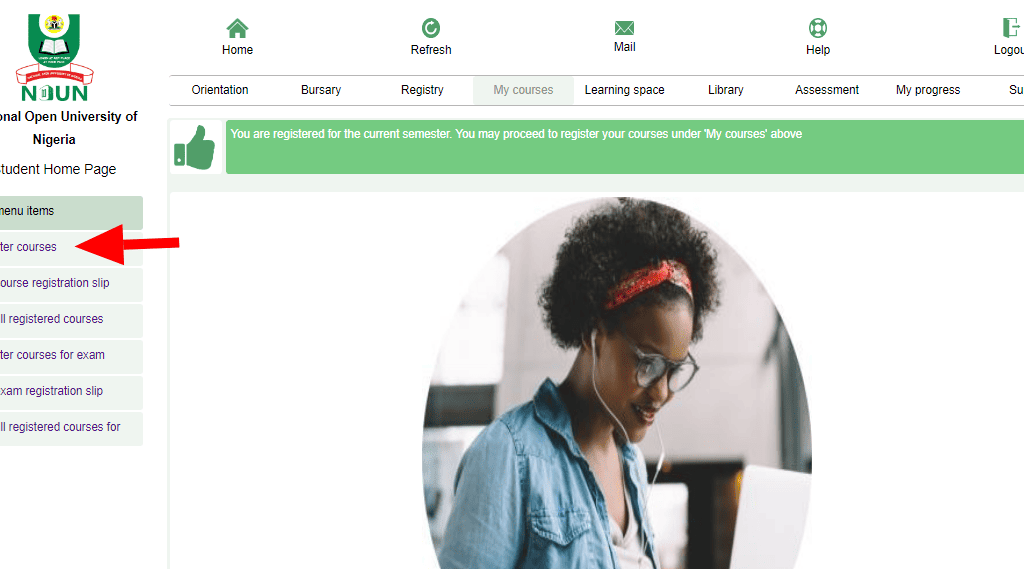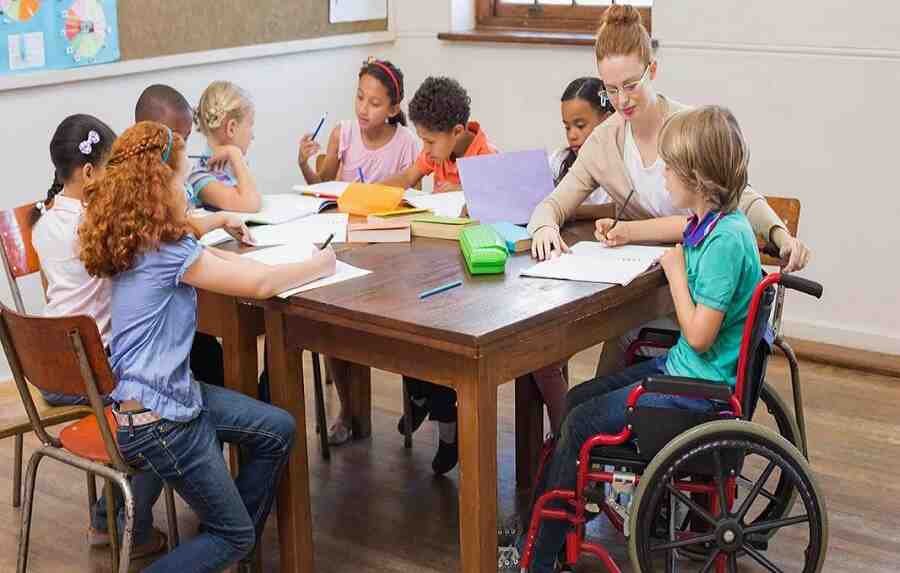

Tips for parents of students with special needs
Understanding Special Needs
Special needs encompass a wide range of conditions that affect a child’s physical, emotional, behavioral, or intellectual development. These can include disabilities such as autism spectrum disorder, attention deficit hyperactivity disorder (ADHD), dyslexia, and developmental delays, among others. Additionally, special needs may arise from physical disabilities such as cerebral palsy or sensory impairments like hearing and vision loss. It is vital to recognize that special needs is an umbrella term that reflects the diverse spectrum of challenges children may face.
One fundamental aspect of special needs is that each child is unique, with individual requirements and strengths. This diversity means that a one-size-fits-all approach to education is not effective. For instance, a child with autism may thrive in a structured environment, while another with dyslexia might require specialized reading interventions. Understanding the specific nature of a child’s needs is paramount for parents and educators alike, as it enhances their ability to support the child’s learning journey effectively.
Furthermore, recognizing these differences is the first step in becoming a strong advocate for the education and well-being of children with special needs. Parents play an integral role in identifying their child’s strengths and challenges. By actively engaging with educators and specialists, parents can help create an educational environment that caters to the unique requirements of their child. In fostering this understanding, parents not only empower themselves but also provide their children with opportunities to reach their full potential. The journey may require patience and perseverance, but with informed support systems, children with special needs can thrive academically and socially.
Building a Supportive Home Environment
Creating a nurturing home atmosphere is crucial for the development and well-being of students with special needs. A supportive environment that accommodates their specific requirements can significantly enhance their sense of security and confidence. One of the first steps in fostering such an environment is establishing consistent routines. Children often thrive on predictability, and daily schedules can help them understand what to expect, thereby reducing anxiety and promoting independence.
Incorporating visual aids into daily life is another effective strategy. Visual schedules, charts, and checklists can assist in guiding students through their routines and responsibilities. By presenting information visually, parents empower their children to engage with tasks more independently, reinforcing their learning process. These tools can also provide motivation, as children can see their progress and achievements throughout the day.
Effective communication is vital in nurturing a home environment that caters to the needs of students with special needs. Parents can foster open lines of communication by encouraging their children to express their thoughts and feelings. Using simple, clear language and visual cues can make this process easier, ensuring that children feel understood and respected. Additionally, actively listening to their children’s needs can help identify specific challenges they may be facing, allowing parents to provide tailored support.
Moreover, creating a designated space in the home for learning and relaxation can enhance productivity and comfort. This area should be free of distractions and equipped with necessary supplies, allowing students to focus without interruption. In addition, allowing for breaks and periods of downtime is essential; it helps to prevent burnout and promotes overall well-being.
By implementing these strategies, parents can create a supportive home environment that not only meets the unique needs of their children but also fosters a sense of belonging and confidence in their abilities.
Effective Communication with Educators
Effective communication between parents and educators is fundamental in supporting students with special needs. Establishing open lines of communication fosters a collaborative environment where teachers can better understand a child’s unique requirements and parents can stay informed about their child’s progress. This partnership greatly enhances the educational experience for students with special needs.
One of the first steps parents can take is to be proactive in initiating communication with teachers and school staff. This can begin by reaching out at the start of the academic year to introduce themselves and express their child’s specific needs. Making a habit of checking in regularly and maintaining a consistent dialogue can help parents stay engaged with their child’s education. Regular updates help parents track their child’s progress and address any concerns in a timely manner.
Attending meetings such as parent-teacher conferences or individualized education plan (IEP) meetings is vital. These gatherings provide an opportunity for parents to share insights about their child’s strengths and challenges. Parents should come prepared with specific examples and questions to facilitate meaningful discussions with educators. This preparation can lead to a clearer understanding of the educational strategies in place and how parents can reinforce these efforts at home.
Moreover, parents should strive for collaboration with educators in the development and implementation of the IEP. By working together to set realistic, attainable goals for their child, parents can help ensure that the educational plan is tailored to their child’s unique learning style and needs. Sharing resources, strategies, and feedback with educators can empower both parties and contribute significantly to the child’s academic success.
In conclusion, effective communication between parents and educators is critical for fostering an optimal learning environment for students with special needs. By engaging actively and collaboratively, parents can ensure their child’s educational journey is supported and enriched, leading to improved outcomes.
Navigating the IEP Process
The Individualized Education Program (IEP) process is a vital aspect for parents of students with special needs, providing a structured approach to ensure that their children receive appropriate educational support. Understanding this process can significantly enhance a parent’s ability to advocate for their child’s needs. The IEP is typically developed during a meeting involving educators, specialists, and parents, where they collaboratively assess the student’s unique requirements and identify necessary accommodations.
One of the initial steps in the IEP process is to gather comprehensive evaluations of the student’s current capabilities and challenges. These assessments can include academic evaluations, psychological testing, and developmental screenings. Parents play a crucial role here by providing valuable insights regarding their child’s strengths and areas of need, contributing to a holistic understanding of the student’s situation. Thus, being prepared with relevant documentation and examples of the child’s performance can bolster a parent’s contribution during the meeting.
During the IEP meetings, parents should anticipate discussing various components of the IEP, including specific goals tailored for the student, the services and support to be provided, and how progress will be monitored over time. It is imperative for parents to ask pertinent questions to clarify any uncertainties and to advocate for any necessary modifications or supports that have not been proposed by the school. Effective communication and collaboration with educators not only foster a positive relationship but also help ensure that the educational strategies align with the child’s needs.
Navigating the IEP process can seem daunting; however, with thorough preparation and proactive engagement, parents can empower themselves to advocate for an appropriate educational environment for their children. By remaining involved and informed, they can facilitate a partnership with schools focused on their child’s success.
Encouraging Independence and Life Skills
Fostering independence in students with special needs is paramount for their personal growth and development. Encouraging autonomy not only enhances self-esteem but also equips individuals with essential life skills that are critical for functioning in society. To achieve this, caregivers and educators should adopt a holistic approach that emphasizes practical skill-building integrated into daily routines.
One effective strategy is the implementation of structured routines that allow students to participate actively in day-to-day activities. For example, involving them in household chores, meal preparation, or personal care tasks can provide meaningful opportunities to practice skills like organization, time management, and responsibility. Such activities not only promote independence but also encourage a sense of accomplishment and self-worth.
Additionally, it is important to tailor activities to the individual’s abilities and needs. Starting with simple tasks and gradually increasing complexity fosters resilience as students face and overcome challenges. This progression helps them recognize their capabilities and reinforces the notion that they can achieve goals independently. Parents and teachers should celebrate milestones, no matter how small, to bolster self-confidence.
To develop practical life skills, consider incorporating role-playing scenarios that mimic real-life situations. This can be particularly beneficial in teaching social skills, decision-making, and problem-solving. For instance, practicing how to handle social interactions or manage conflict in a safe environment can prepare students for similar situations outside of their immediate support systems.
Moreover, encouraging advocacy is critical. Students should be empowered to express their needs and preferences. This could include participating in IEP meetings or communicating with teachers about their learning styles. In doing so, they learn valuable skills that will serve them well as they navigate both academic and personal environments.
Overall, a combination of structured routines, role-playing activities, positive reinforcement, and advocacy techniques can significantly contribute to fostering independence and developing essential life skills in students with special needs. By focusing on these areas, caregivers and educators can lay a solid foundation for a more autonomous and self-sufficient future.
Accessing Resources and Support Networks
For parents of students with special needs, navigating the educational landscape can be challenging; however, a variety of resources and support networks are available to help. Special education organizations play a crucial role in providing information about disability rights, educational strategies, and available services. National and local advocacy groups, such as the National Parent Technical Assistance Center or the Council for Exceptional Children, offer valuable insights into the special education process and legislate supports. These organizations frequently host workshops, webinars, and conferences that provide parents with practical tools to ensure their child receives appropriate educational support.
In addition to formal organizations, online communities and social media platforms have become vital networks for parents seeking connection and support. Online forums dedicated to special education allow parents to share experiences, pose questions, and access a wealth of information from fellow caregivers. Engaging with these communities can reduce feelings of isolation and empower parents to advocate more effectively for their children.
Local support groups, often organized by schools or community organizations, also present an essential resource. These gatherings enable parents to meet face-to-face, exchange stories, and discuss strategies for managing challenges specific to their children’s needs. Such interactions often lead to lasting friendships and collaborative efforts among parents to influence positive changes within their educational systems.
Moreover, staying informed about the latest developments in special education is vital. Subscribing to newsletters from reputable special education organizations and following pertinent blogs or podcasts can keep parents updated on policy changes, best practices, and emerging trends. By utilizing these diverse resources and support networks, parents can enhance their understanding of special education and become effective advocates for their children’s educational journeys.
Promoting Social Skills and Friendships
Supporting students with special needs in building social skills and friendships is crucial for their overall development and well-being. Parents play an essential role in this process, and there are several strategies they can implement to foster positive social interactions.
Encouraging participation in social activities is a fundamental step towards building friendships. Parents should explore local community centers, sports teams, art classes, or clubs that align with their child’s interests. Engaging in group activities not only provides opportunities for interaction but also helps children learn to work collaboratively, respect others, and communicate effectively.
Moreover, parents can facilitate social skill development through structured playdates or small group gatherings. Creating a comfortable environment allows children to practice social scenarios, like sharing toys or taking turns. During these interactions, parents can guide their children on making eye contact, initiating conversations, and recognizing social cues. Role-playing different social situations can also prepare students for real-life interactions.
Utilizing technology can be another valuable resource. Apps and online platforms designed for special needs can offer social skills training, allowing children to learn at their own pace. For some, online friendships may serve as a stepping stone to face-to-face interactions, gradually increasing their comfort level in social settings.
However, challenges in socialization can arise. Parents should address any anxiety their children may experience regarding social interactions by normalizing these feelings and employing gradual exposure techniques. Celebrating small successes along the way can greatly enhance a child’s confidence in social contexts. Additionally, fostering empathy and active listening skills can aid students in forming meaningful relationships with their peers.
In conclusion, promoting social skills and friendships among students with special needs requires patience, consistency, and encouragement from parents. By providing opportunities for interaction, guiding social experiences, and utilizing available resources, parents can empower their children to develop strong social connections.
Self-Care for Parents
Parenting a child with special needs can be an incredibly rewarding yet challenging experience. It is essential for parents to recognize the significance of self-care in this journey. The demands of caregiving can often lead to physical and emotional exhaustion, which may ultimately impact a parent’s ability to support their child effectively. Therefore, implementing self-care strategies is critical for maintaining personal well-being.
One of the primary ways to manage stress is by setting aside time for oneself. Parents should try to carve out moments in their daily schedules that are dedicated solely to their interests or relaxation. This could involve engaging in a hobby, participating in a physical activity, or simply enjoying a quiet moment with a book. By allowing time for personal pursuits, parents can recharge their batteries, thereby enhancing their capacity to care for their child.
In addition to individual activities, seeking respite through support networks is invaluable. Many communities offer local resources such as support groups, childcare services, and respite care options designed for families with special needs. Utilizing these resources not only provides parents with a breather, but also connects them with others who share similar experiences. This communal support can transform the perception of isolation into one of solidarity and shared understanding.
Furthermore, developing a strong support system of friends, family, or professionals is essential. Regularly communicating with individuals who understand the unique challenges of parenting a child with special needs can alleviate anxiety and offer a sense of reassurance. Parents may also consider professional therapy or counseling to help navigate their emotions and experiences effectively.
In conclusion, prioritizing self-care is fundamental for parents of children with special needs. By incorporating stress management techniques, seeking respite, and fostering supportive relationships, parents can maintain better health. Ultimately, a well-cared-for parent is better equipped to provide the nurturing and assistance their child needs to thrive.
Celebrating Progress and Milestones
Recognizing and celebrating the achievements of students with special needs is crucial in fostering their self-esteem and motivation. Every milestone, whether large or small, is significant in the journey of these students. Parents play an essential role in this process, as their support and acknowledgment can greatly enhance their child’s confidence and willingness to engage in learning activities. Celebrating progress can take many forms, from simple affirmations to organized events that highlight accomplishments.
It is important to acknowledge that every student progresses at their own pace. What may seem like a small achievement to others can represent significant growth for a child with special needs. For instance, mastering a new skill in communication or achieving a personal goal can provide a sense of accomplishment and encourage the pursuit of further challenges. Parents should maintain an open line of communication with their children and take time to discuss with them how they feel about their progress. This dialogue not only reinforces the importance of achievements but also encourages a growth mindset.
Moreover, celebrating milestones can help create positive memories associated with learning. Engaging in celebratory activities such as family dinners, small ceremonies, or even simple gestures like stickers or certificates can motivate children to continue their efforts. It is essential for parents to understand that the focus should not solely be on the results but also on the effort put forth by the student. Encouraging a love for learning through positive reinforcement can make a substantial impact on their overall development.
In conclusion, recognizing and celebrating progress and milestones is vital for the emotional and intellectual growth of students with special needs. By promoting a culture of celebration, parents not only help their children to appreciate their achievements but also nurture resilience and a lifelong love for learning.























Post Comment